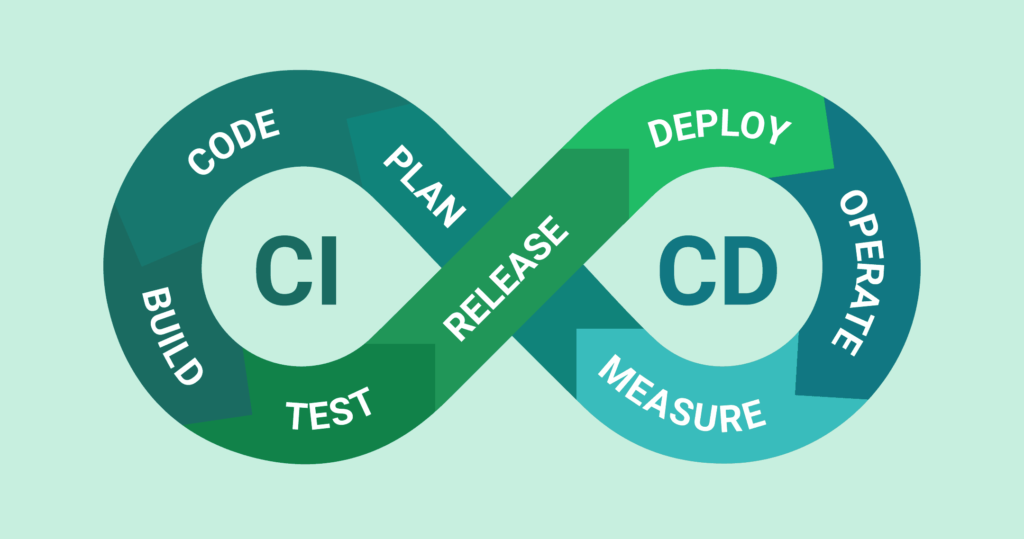A complete roadmap to became an Devops Engineer.
Becoming a DevOps engineer requires a combination of technical skills, domain knowledge, and practical experience. This roadmap will guide you through the essential steps to embark on a successful journey as a DevOps engineer. This roadmap will provide you with a solid foundation to start your career in DevOps engineering.
1. Understand the DevOps Philosophy
DevOps is not just about tools and technologies; it's a cultural shift that aims to bridge the gap between development and operations teams. Start by understanding the core principles of DevOps, such as collaboration, automation, continuous integration, continuous delivery, and monitoring.
2. Master the Fundamentals
Before diving into the specifics, develop a strong foundation in key areas like Linux systems administration, networking concepts, and version control systems (e.g., Git). Learn scripting languages like Bash and Python, as they are widely used in automation and configuration management.
3. Learn Cloud Computing
Cloud platforms have revolutionized the way software is developed, deployed, and managed. Familiarize yourself with major cloud providers such as Amazon Web Services (AWS), Microsoft Azure, and Google Cloud Platform (GCP). Learn about virtualization, infrastructure as code (IaC), and cloud deployment models.
4. Automation and Configuration Management
Automation is at the heart of DevOps. Explore popular automation and configuration management tools like Ansible, Puppet, or Chef. Learn how to automate infrastructure provisioning, configuration, and application deployment. Understand concepts like Infrastructure as Code (IaC) and tools such as Terraform and CloudFormation.
5. Containerization and Orchestration
Containers have transformed application deployment and scalability. Dive into containerization technologies like Docker and container orchestration platforms like Kubernetes. Gain hands-on experience in building, deploying, and managing containerized applications.
6. Continuous Integration and Delivery (CI/CD)
CI/CD practices enable faster and more reliable software releases. Learn about CI/CD concepts, tools, and best practices. Explore popular CI/CD tools such as Jenkins, GitLab CI/CD, and CircleCI. Understand how to create pipelines for building, testing, and deploying applications.
7. Monitoring and Logging
Monitoring and logging are crucial for maintaining application performance and identifying issues. Familiarize yourself with monitoring tools like Prometheus, Grafana, and ELK (Elasticsearch, Logstash, and Kibana) stack. Learn about metrics, logs, and alerting to ensure application health and performance.
8.Security and Compliance
DevOps engineers need to consider security and compliance aspects throughout the software development lifecycle. Learn about secure coding practices, vulnerability scanning, and security testing. Understand concepts like DevSecOps and infrastructure security controls.
9. Collaboration and Communication
Effective collaboration and communication skills are vital in a DevOps role. Explore collaboration platforms like Jira, Confluence, and Slack. Understand agile methodologies, such as Scrum or Kanban, and learn about effective communication and collaboration techniques.
10. Continuous Learning and Improvement
The DevOps landscape is constantly evolving. Stay updated with the latest trends, tools, and technologies. Engage in continuous learning through online communities, blogs, conferences, and relevant certifications. Foster a mindset of continuous improvement and embrace new challenges.
11. Gain Practical Experience
Theory is essential, but hands-on experience is equally important. Engage in real-world projects or contribute to open-source projects. Build your own personal projects to practice and demonstrate your skills. Join DevOps communities and collaborate with experienced professionals.
12. Obtain Certifications
Certifications can validate your knowledge and enhance your professional profile. Consider obtaining certifications such as AWS Certified DevOps Engineer, Certified Kubernetes Administrator (CKA),
or DevOps Institute's DevOps certifications.
13. Build a Strong Network
Networking with like-minded professionals can provide valuable insights and opportunities. Join DevOps meetups, forums, and online communities. Engage in discussions, share your knowledge, and learn from others' experiences.
14. Prepare for Interviews
Develop your interview skills and prepare for DevOps-specific interviews. Highlight your experience with automation, cloud platforms, CI/CD, and infrastructure-as-code practices. Be prepared to answer questions about collaboration, problem-solving, and real-world scenarios.
15. Continuously Evolve and Adapt
DevOps is a dynamic field, so it's crucial to adapt and evolve with emerging technologies and practices. Embrace new tools, methodologies, and industry trends. Stay curious and never stop learning.
Remember, this roadmap is a starting point, and your journey as a DevOps engineer will require perseverance, hands-on experience, and continuous learning. Keep exploring, building, and refining your skills to excel in the DevOps domain. Good luck!






Comments